Trump presidency: Protests turn violent in Portland, Oregon
- Published
Portland's anti-Trump protest turn violent
Overnight protests against the election of Donald Trump as US president turned violent in Portland, Oregon.
About 4,000 demonstrators gathered in the centre of the western city. Some smashed shop and car windows, threw firecrackers and set rubbish alight.
Police declared a riot and made 26 arrests. Oregon voted in favour of Hillary Clinton in Tuesday's election.
After blaming unrest on "professional protesters", Mr Trump tweeted to commend their "passion" for America.
"Love the fact that the small groups of protesters last night have passion for our great country," he wrote. "We will all come together and be proud!"
In his earlier tweet, he had accused the media of inciting the protests.
The protesters, mainly young people, say a Trump presidency would create deep divisions along racial and gender lines.
In another development, the incoming president also tweeted, external that Friday would be "busy", and he would "soon be making some very important decisions on the people who will be running our government".
Mr Trump met President Barack Obama at the White House on Thursday.
'Galvanised'
Police in Portland accused some demonstrators of carrying bats and arming themselves with stones. Objects were thrown at the police, who responded with pepper spray and rubber baton rounds.
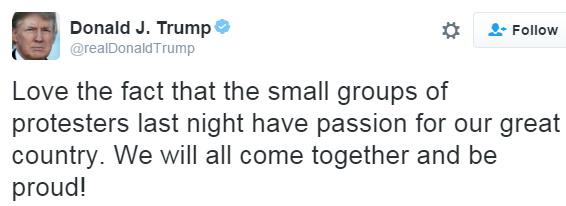
Protesters in the city centre could be heard chanting "We reject the president-elect!"
Spencer and Kristen Foxworth, who left the protest before it turned violent, told the BBC most of the demonstrators were just ordinary people like themselves who were horrified by some of the things Mr Trump stood for.
"This is not any sense of a hangover, this is more like the galvanising effect," Mr Foxworth told Outside Source. "People who were quiet, were polite or not activists by any means - I mean myself, for example - are now galvanised by this. Trump now has the Senate and the House, and there will be very little checks and balances on his actions."
There were no reports of violence at the other protests:
Demonstrators in Minneapolis briefly blocked an interstate highway in both directions
In Philadelphia, crowds gathered near City Hall holding placards bearing slogans such as "Not Our President", "Trans Against Trump" and "Make America Safe For All"
In Baltimore, police say a peaceful crowd of 600 people marched through the city, blocking traffic
In San Francisco, high school students waved rainbow banners and Mexican flags
A small crowd also gathered outside Trump Tower in Chicago while protesters also returned to Trump Tower in New York for a second night
Trump and Obama play nice, but it wasn't always so
Senior Trump adviser and former New York mayor Rudy Giuliani, tipped by some to be the next attorney general, called protesters on college campuses "a bunch of spoiled cry-babies".
Republican National Committee chairman Reince Priebus said anti-Trump protesters had to accept the election results.
"Everyone needs to just take a deep breath, take the weekend... count our blessings, and let's come back on Monday," he told ABC News.
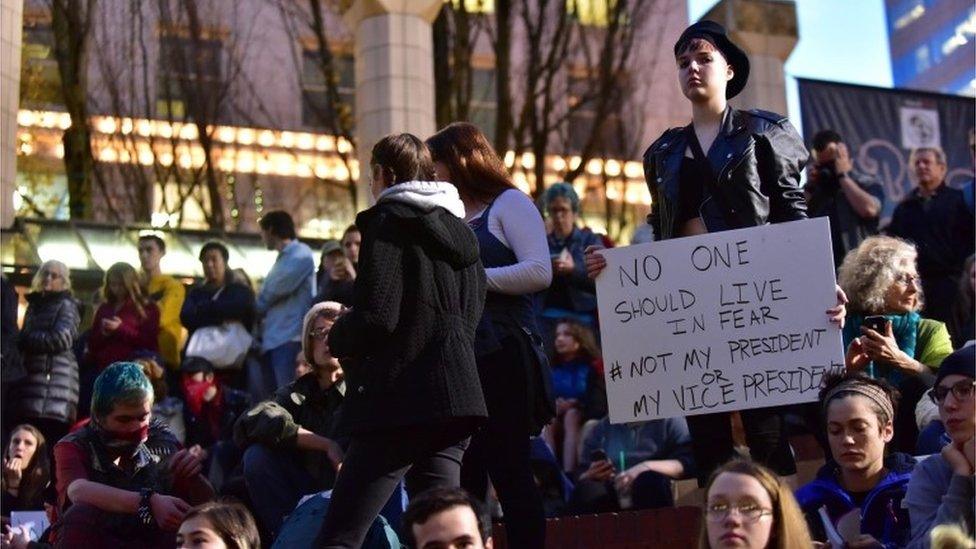
Thousands took to the streets in Portland
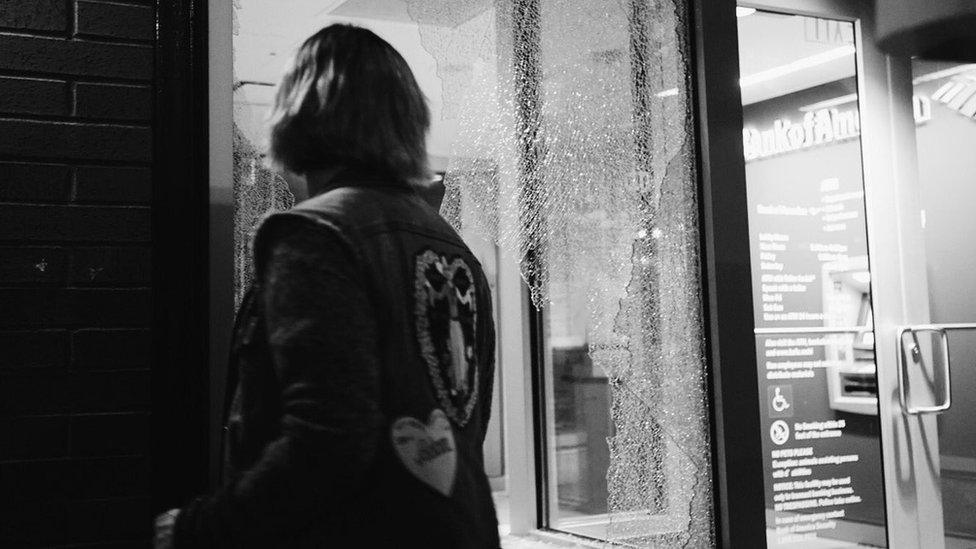
Police accused some Oregon protesters of arming themselves with bats
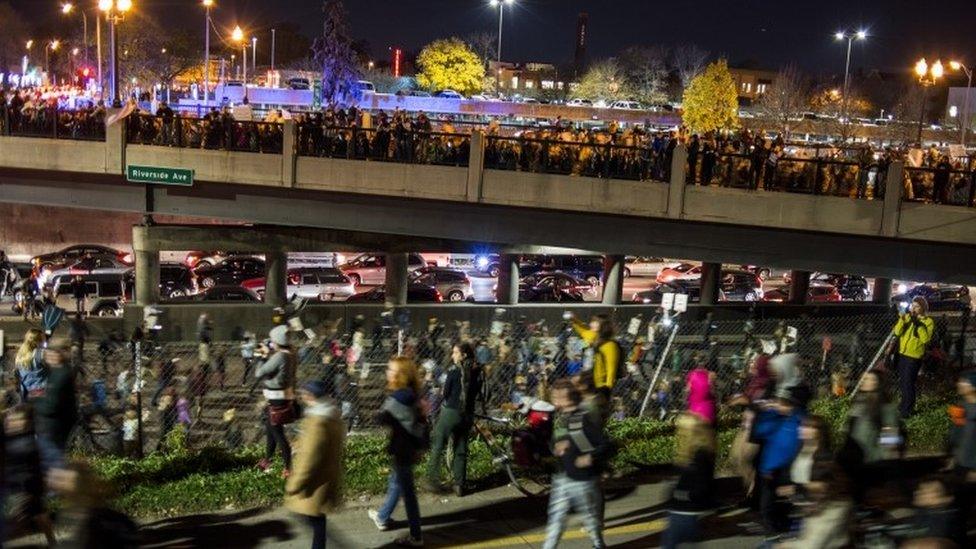
Protesters in Minneapolis blocked a highway
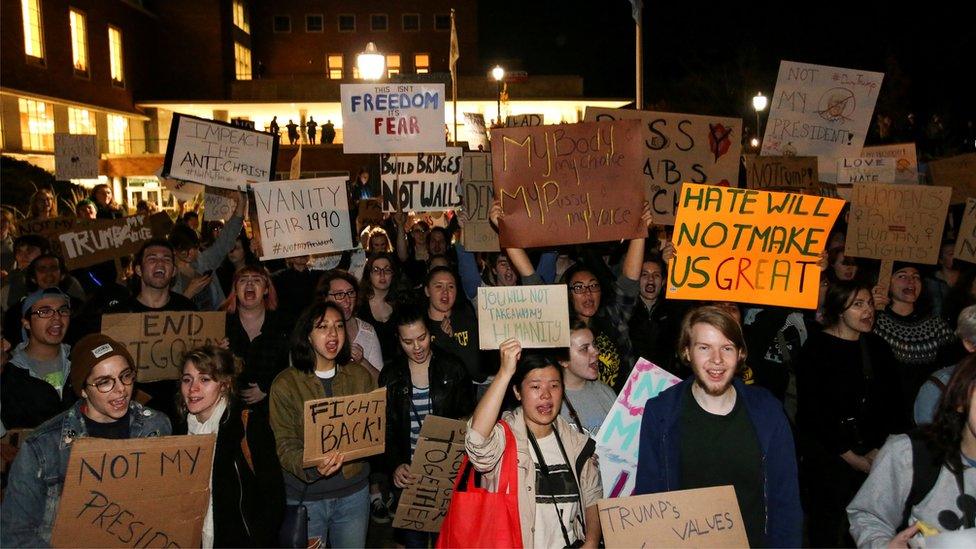
Demonstrations were also held in smaller cities such as Eugene in Oregon
'Great honour'
Mr Trump's team is understood to be focused on quickly filling key national security posts.
It is not yet clear who will sit his cabinet or fill senior posts in his administration, such as chief of staff, but several figures in his inner circle have been mentioned.
The president-elect's transition team for the 10-week period until inauguration will be led by Chris Christie, governor of New Jersey.
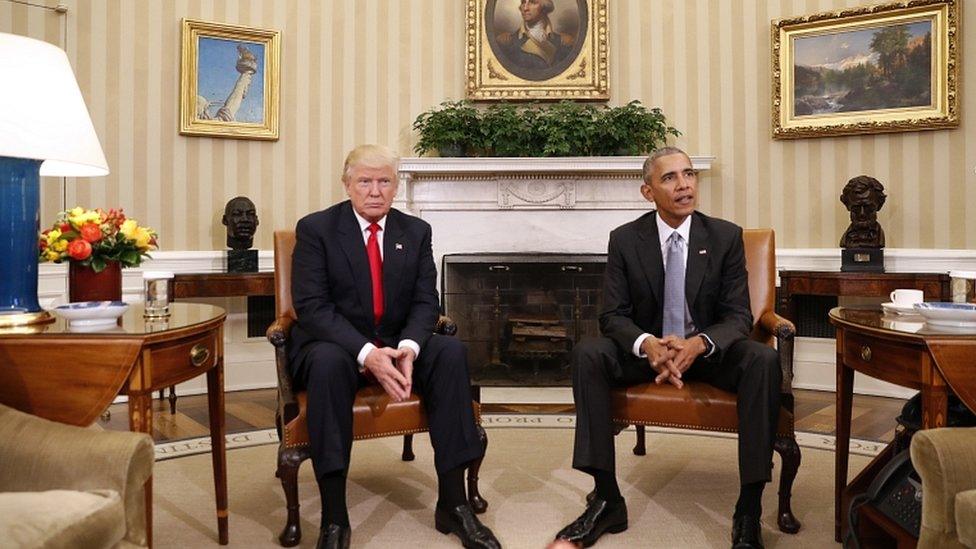
President Barack Obama meets President-elect Donald Trump in the Oval Office
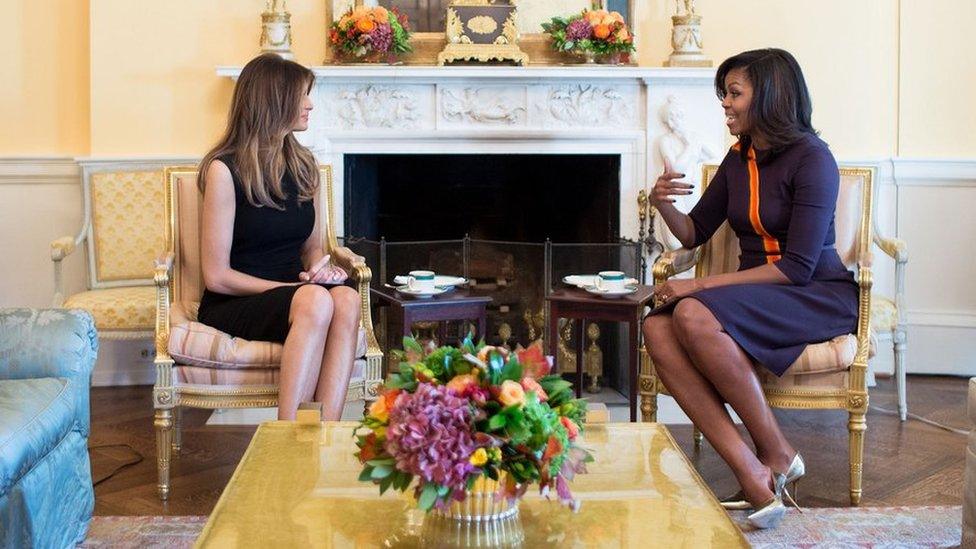
Melania Trump (left) and Michelle Obama also met on Thursday
After meeting President Obama at the White House, the president-elect said it had been a "great honour" to meet him.
Mr Obama said his priority was to "facilitate a transition that ensures our president-elect is successful".
Despite their cordiality, Mr Trump has vowed to dismantle much of President Obama's legacy. That includes Obamacare, the act extending medical insurance to more Americans than ever before.
Mr Trump also met Republican House Speaker Paul Ryan, with whom he had strained relations during the campaign. Mr Ryan described it as a "fantastic, productive meeting".
Trump meets highest-ranking Republican
In other developments:
Mexican President Enrique Pena Nieto said he was optimistic his country could have a positive relationship with the US under Mr Trump, despite his anti-Mexican rhetoric during the campaign
Russian President Vladimir Putin's spokesman said Mr Trump and Mr Putin were "very much alike" in how they saw the world
How Donald Trump won the presidency
Your browser does not support this interactive content. You must be using a modern browser with Javascript enabled to view our results maps.